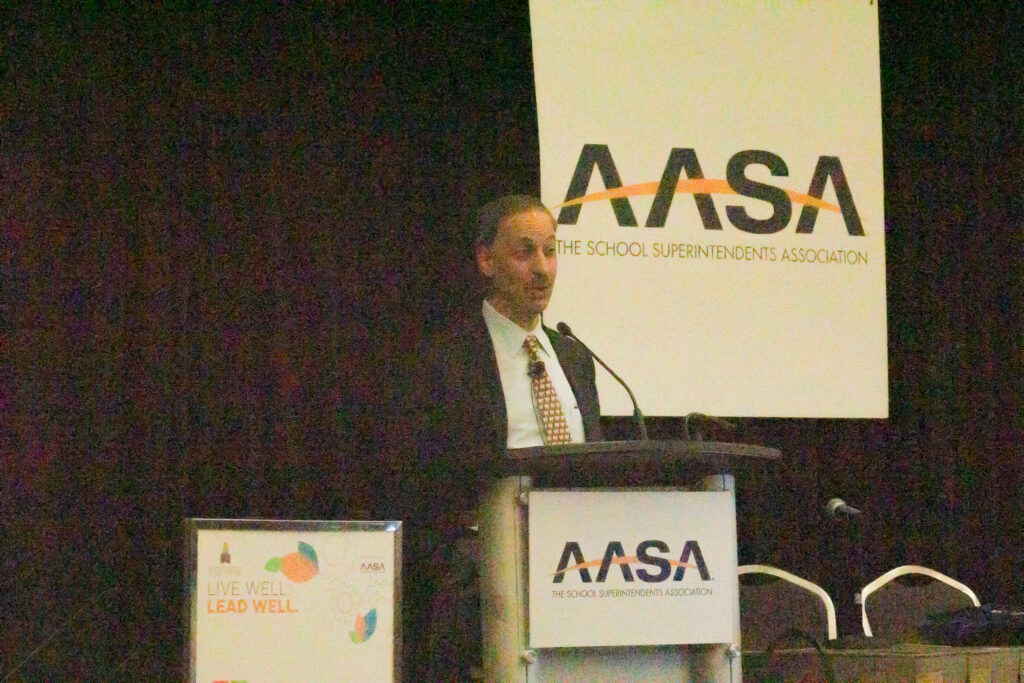School administrators step up in crisis whenever they help their schools and families. But they weren’t trained to do that work, said David Schonfeld, director of the National Center for School Crisis and Bereavement and Pediatrician at Children’s Hospital in Los Angeles.
Schonfeld presented on “Caring for Yourself and Your Members” at a Thought Leader session at the AASA national conference in San Antonio, Texas, on Thursday.
Professional self-care is needed in leadership roles. Schonfeld said he believes school administrators need to be taught how to cope with loss, natural disasters and trauma before a crisis happens, and they need to learn how to teach their staff the same.
People who are not directly affected can still be impacted by traumatic events. Individuals experience and cope with trauma differently, and traumatic experiences can bring up past trauma as well.
Crisis involving schools often results in a drop in student enrollment, which can cause staff job losses. These issues put even more pressure on school administrators, Schonfeld said.
“When you go into one crisis, you’re not dealing with that crisis alone,” he said.
“You’re dealing with everything that follows and everything that came before the crisis event.”
Schonfeld said superintendents should always worry about their students’ well-being.
“The issue is not being upset,” said Schonfeld. “The issue is how you deal with being upset.”
Schonfeld shared many tips for when crisis occurs. Decision making should be shared among administration and staff. The pre-crisis workload and schedule may need to be modified during the aftermath. The staff should support each other and get together to have peace.
“Our goal is to get back to excellent teaching, learning and kids achieving, loving learning and doing as well as they were before trauma happened,” he said.
(Emily Hughitt is a reporting intern with AASA’s Conference Daily Online and a sophomore at Howard Payne University in Brownwood, Texas.)


